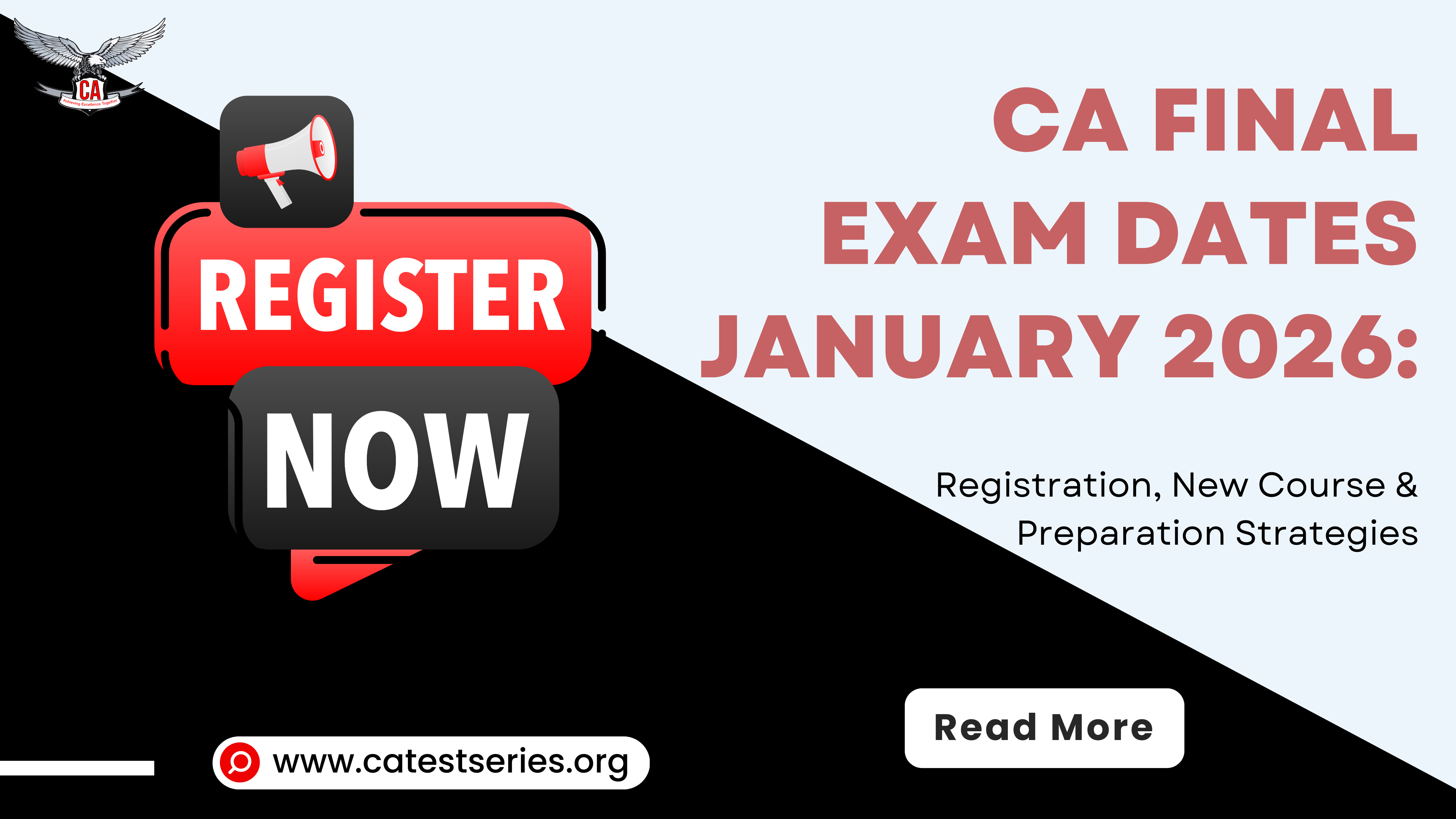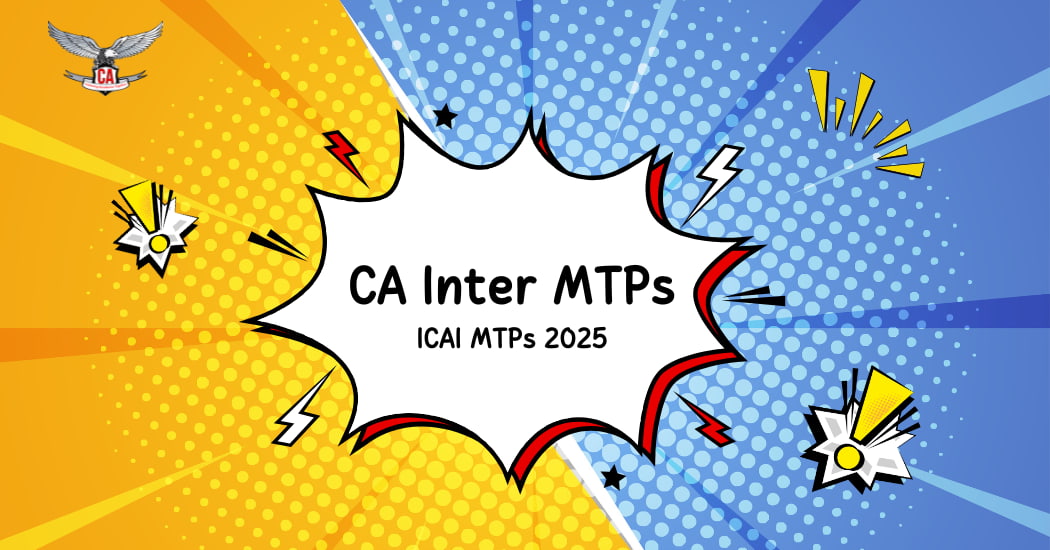Why Choose ICMAI CMA Course for Your Career | Job Opportunities for CMA In India & Salary
Why is a CMA the Right Choice for Your Career?
Enrolling in a Certified Management Accountant (CMA) program is a wise choice for anyone hoping to work in the accounting or finance industries. Thus, it is obvious why the CMA qualification attracts respect in all parts of the world, in addition to income and status improvements and increased chances of employment in the finance profession.
Pursuing a CMA certification offers a range of financial and business planning skills, as well as opportunities for advancement and higher compensation. In order to help you understand why this course would be perfect for you, we will now examine the primary benefits, career prospects, and structure of the CMA course.
Why Choose the CMA Course?
The designation of Certified Management Accountant (CMA) is accepted and valued worldwide and promotes oneself as a professional in the field of accounting and management. The CMA is advantageous, especially in stressing the practical and managerial aspects of management, unlike other accounting qualifications, which tend to be more of a skills-oriented focus on the area of financial reporting.
There are various areas, including professional ethics, planning finance, management, control, decision support, and many others, that allow a CPA to have a good source of knowledge for making key management decisions.
Benefits of the CMA Course
Global Recognition
The global acceptance of the CMA certification is one of its most significant advantages. With a presence in more than a hundred countries, professionals with this certification are highly respected by different multinationals and big businesses in all corners of the globe.
For such individuals, especially those with a desire to work for foreign employers or international firms, the CMA certification presents an edge over other candidates as it helps in gaining access to positions that require somebody with a holistic awareness of finance and management as pertains to the global perspective.
Competitive Salary and Earning Potential
It is a common observation that CMAs in management consulting earn more than those without CMA certification. Despite this fact, most surveys report that CMAs tend to earn more than most accountants with no such designation. As explained later, this difference in the salary structure is largely due to the position that CMAs hold within the organization and the type of advanced financial skills held by CMAs. Clearly, the qualification enables one to be regarded as a professional at that level, and such sought-after skills are appreciated by business entities and mostly come at a cost.
Industry Versatility
Finance, manufacturing, healthcare, government, information technology, and retail are just a few of the industries in which certified public accountants work. While some financial positions are industry-specific, a certified public accountant skills are applicable to any industry. People who want to keep their options open or switch careers as the market shifts will benefit from this flexibility.
Dual Skill Set: Accounting and Strategic Management
Professionals with a CMA certification are qualified to engage in the practice of creating financial reports and devising plans for the operations of the company since they possess strong accounting and management skills. For this reason, CMA helps with strategy planning related to tasks like forecasting, corporate budgeting, company performance analysis, and management supervision. These tasks develop analytical skills in students, allowing them to understand complex informational systems, provide useful recommendations, and support the organization plans.
Career Prospects with the CMA Credential
High-Level Management Positions
CMA is a great acknowledgement for many administrators, owing to the fact that a good number of them have risen to the top ranks in their organizations. The common job titles for CMAs include those of Chief Financial Officer, Financial Controller, Cost Accountant, Financial Analyst, and Corporate Treasurer. The CMAs are valued because they are capable of making financial decisions that help achieve the organization strategic goals and, in turn, the financial outcome of the company. CMAs are also posed to take up critical leadership positions as they focus on budgeting, performance management, and cost management.
International Opportunities
As a result of the CMA worldwide acceptance and respect, CMAs can work in the international market or with global organizations. Many such multinational firms have departments that require an understanding of international standards and financial rules, as well as the conduct of businesses across borders; such wings are always on the lookout for CMAs. This international appeal is especially favorable for people who tend to work in different nations or aspire to work for global companies.
Strong Demand across Industries
A lot of organizations have given special attention to strategic financial management, and because of that, CMAs are in all sectors without exception. In every sector, from information technology to manufacturing to health care, organizations employ CMAs in order to help them become more profitable, cut costs, and increase productivity.
More especially, the outbreak of the COVID or coronavirus has increased the demand for finance experts who will enable companies to structure their strategies and processes in a more professional manner. In all those sectors, there is constant and increasing construction of CMAs, and this explains the need for effective financial management, especially with regard to the preservation and even enhancement of jobs.
CMA Course Structure
The journey of a CMA course is segregated into two distinct sections that tend to address the same area of management and accounting on strategic financial management but from different angles. All the candidates are required to pass the two divisions without fail in order to obtain the CMA certification.
Part 1: Financial Planning, Performance, and Analytics
The main subjects in the CMA exam include forecasting, performance management, planning, and budget creation. This section allows students on the basis of financial reporting principles and labelled topics such as:
- External Financial Reporting Decisions: Basics of financial statements, reporting frameworks, and regulatory compliance.
- Planning, Budgeting, and Forecasting: Tools for Budgetary Preparation, Performance Forecasting, and Variance Analysis.
- Performance Management: The ability to analyze corporate performance using performance measurements, balanced scorecards, and KPIs.
- Cost Management: Being aware of various types of expenses and how to control them.
- Internal Controls: Basics of risk management, internal audit, and control frameworks.
The finance portion of the CMA examination does not only help the candidates in understanding financial texts, making projections, and achieving the goals of the company through good finance.
Part 2: Strategic Financial Management
The second section of the CMA exam deals with advanced decision-making and corporate strategy issues. The contents of Part 2 include:
- Financial Statement Analysis: Examining financial statements in order to make investment decisions, create strategies, and assess credit.
- Corporate Finance: Corporate finance covers long-term financing, dividend policy, risk management, and capital structure fundamentals.
- Decision Analysis: Determination of capital investments, pricing, and profitability techniques.
- Risk Management: Understanding different types of risks and strategies to mitigate them.
- Investment Decisions: Examining mergers and acquisitions, value, and investment prospects.
- Professional Ethics: Being aware of moral principles and how they relate to financial professionals.
This section aims to provide participants with the necessary capabilities to affect and engage in strategic business decisions, calculate financial risk, and offer direction on the realization of companies established goals over time.
How to Prepare for the CMA Exam
In general, a candidate preparing for the CMA exam can either study on their own or attend review courses. The candidates are advised to make use of the official IMA materials and web-based training and study group resources. Since this is a very competitive examination, participants may carry out their studies for a period that ranges from six to eighteen months, depending on the individual qualifications, study approaches, and the available time for the study.
For most of the candidates, the decision to take a standalone program to prepare for the examinations comes due to the large scope of coverage in the syllabus and the need to complete it on time. In fact, many popular review program courses include items such as mock tests, test flashcards, and instructor access, all of which tend to increase the chances of the candidate taking the examination and passing it in the first sitting.
Conclusion
The CMA course is not only rewarding in terms of salary but also offers a plethora of career options and the right balance of knowledge in finance and business. The CMA qualification strengthens the chances of anyone wishing to be involved in business strategy, as it is recognized globally and in almost all sectors. By getting the CMA, one is not only able to learn a more complex level of finance skills but also earns a certificate that reflects his or her values and standing to take charge in the financial world. The CMA course is, therefore, for those who wish to broaden their finance management skills, and it is one of the most purposeful courses for career advancement.












